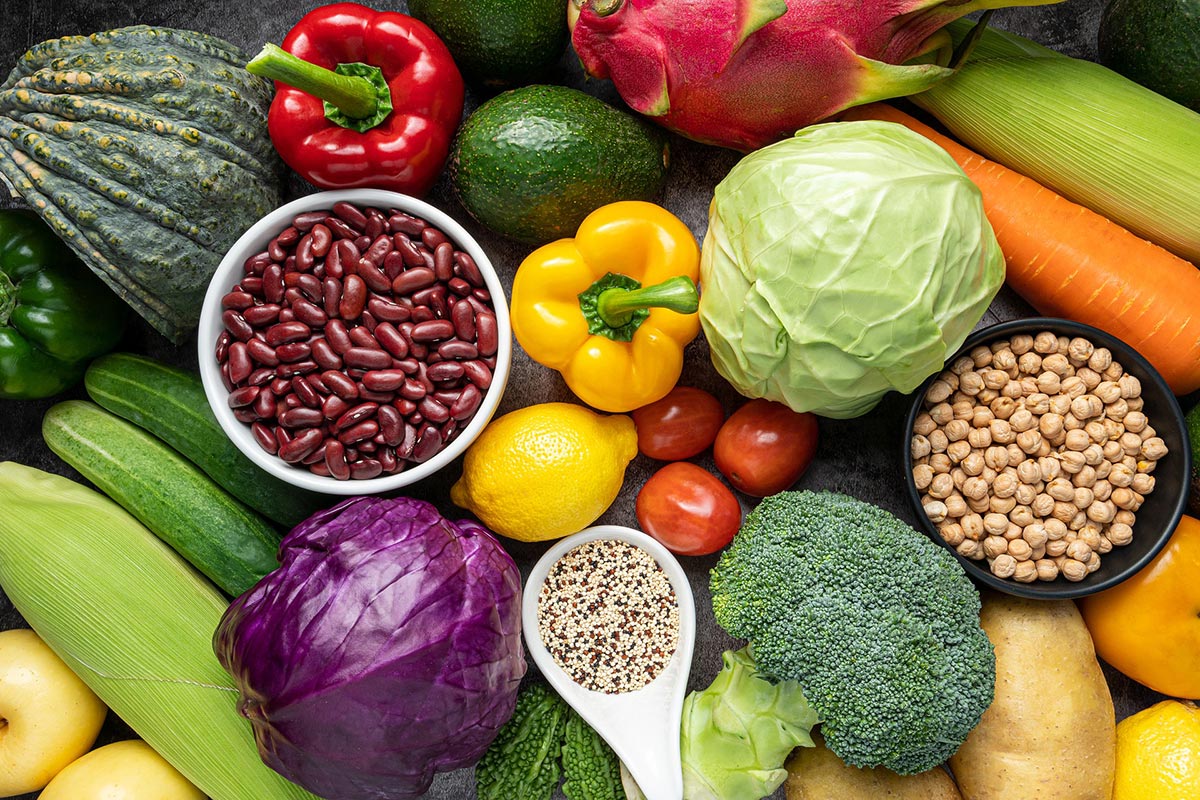Proper nutrition and physical fitness go hand in hand, but there's no single "superfood" that guarantees perfect health simply by consuming it. Instead, a diverse intake of foods from various food groups each day is essential. Paying attention to portion sizes is also crucial to avoid overeating. Making mealtimes pleasant and relaxed occasions allows healthy foods to work synergistically with positive emotions, contributing to overall well-being. This guide explores ten food categories that offer a wide range of nutrients vital for maintaining optimal health and fitness. Incorporating these foods into your diet can significantly contribute to your overall well-being.
Berries: Antioxidant Powerhouses
Whether you prefer a mix of various berries or have a few favorites, incorporating fresh berries as a quick energy boost or using frozen berries to create delicious, healthy desserts is a great way to enhance your diet. Berries are generally rich in vitamin C, but different varieties offer unique nutritional profiles. Ripe blueberries are packed with vitamin C and antioxidants, which are beneficial for circulatory health. Goji berries, while less common, are exceptionally rich in various nutrients that support both nutritional and physical fitness. Other berries, such as strawberries, raspberries, and blackberries, also offer a wealth of vitamins, minerals, and antioxidants. This makes berries a versatile and valuable addition to any healthy diet.
Citrus Fruits: Vitamin C Boosters
Citrus fruits are widely recognized as excellent sources of vitamin C. Choosing fully ripened citrus fruits maximizes their nutritional value. Ideally, consuming fruits picked at their peak ripeness and shortly after harvesting provides the highest nutritional benefit. Consider incorporating grapefruit into your breakfast routine, adding a squeeze of fresh lime to your salad dressing, or enjoying slices of orange with coconut in a light honey glaze for dessert. These simple additions can significantly boost your vitamin C intake and provide a refreshing burst of flavor. The versatility of citrus fruits allows for creative culinary applications, making it easy to incorporate them into various meals and snacks.
Vegetables: A Diverse Source of Essential Nutrients
The variety of vegetables available is truly impressive. For vegetarians and vegans, incorporating a wide range of vegetables is essential for maintaining a nutritionally balanced diet. Vegetables provide many of the minerals necessary for optimal health. While bananas are often touted as a good source of potassium, cruciferous vegetables like broccoli also offer a substantial amount of this essential mineral. Try a fresh baby spinach salad with a light vinaigrette dressing for a nutritious and satisfying meal. Other vegetables, such as carrots, bell peppers, and tomatoes, offer a wealth of vitamins and antioxidants. Including a variety of colorful vegetables in your diet ensures you're getting a broad spectrum of essential nutrients.
Complex Carbohydrates for Sustained Energy
Similar to other food groups, choosing only one type of whole grain doesn't provide the full spectrum of nutrients needed for overall health. Combining two or more whole grains can often provide complete proteins. For example, brown rice and wheat kernels with a flavorful seasoning are a popular staple in many cultures. Whole grains provide complex carbohydrates, which offer sustained energy release compared to simple carbohydrates. This makes them an important part of a balanced diet for maintaining energy levels throughout the day. Choosing whole grain options over refined grains can also contribute to improved digestive health due to their higher fiber content.
Salmon: Omega-3 Fatty Acids for Brain Health
Salmon is a fatty fish and one of the best nutritional choices among seafood options. It's rich in omega-3 fatty acids, which are known to improve brain function. Baked salmon with just lemon or used as a flavorful addition to salads makes a delicious and healthy meal. Salmon is also commonly found in chilled seafood dishes. The omega-3 fatty acids in salmon and other cold water fishs offer a range of health benefits beyond brain function, including supporting heart health and reducing inflammation. This makes salmon a valuable addition to a balanced diet.
A legume is the fruit or seed of a plant in the legume family. Legumes are sometimes referred to as pods. Examples of edible legumes include soybeans, peas, lentils, beans, and peanuts. Legumes are rich in iron and high in fiber, making them excellent nutritional choices. Peanuts, a type of legume, have been used to create numerous products for both consumption and other purposes. The combination of fiber and protein in legumes contributes to feelings of fullness and can aid in weight management. Legumes are also a good source of plant-based protein, making them an important part of vegetarian and vegan diets.
Nuts and Seeds: Nutrient-Dense Snacks
Nature has packed a wealth of nutrients into small packages like nuts and seeds. While walnuts and pecans are well-known for their nutritional value, flax seeds are a valuable source of omega-3 fatty acids for those who don't consume meat. Nuts and seeds also provide healthy fats, protein, fiber, vitamins, and minerals. They make excellent snacks and can be added to various dishes for a nutritional boost. However, it's important to consume nuts and seeds in moderation due to their high calorie content.
Lean Proteins: Essential Building Blocks
The key here is "lean." Many people in Western cultures consume excessive amounts of protein compared to other parts of the world. Reducing portion sizes—three ounces is generally sufficient for daily protein needs—and trimming visible fat from protein sources are important steps. Consider incorporating non-meat protein sources, such as the complete proteins found in plant-based dishes like beans and brown rice. Lean protein is essential for building and repairing tissues, supporting immune function, and maintaining overall health. Choosing lean sources and controlling portion sizes ensures you're getting the benefits of protein without excessive calorie or fat intake.
Tea: Hydration and Health Benefits
Depending on the type of tea you choose, you can gain various health benefits. Green tea offers an antioxidant boost, while herbal teas provide a soothing and relaxing experience. Starting your day with a robust black tea or enjoying the calming effects of herbal tea in the evening can be a healthy and enjoyable habit. Non-herbal teas can also help you stay alert when you need a boost. Tea contributes to hydration and can offer additional health benefits depending on the variety.
Olive Oil: A Healthy Fat Source
Olive oil is arguably one of the healthiest fats you can use in your diet. It can be used in salad dressings, mixed with vinegar to create homemade vinaigrettes, or used for cooking. However, it's important to avoid overheating the oil, which can degrade its quality. Olive oil is rich in monounsaturated fats, which are beneficial for heart health. It also contains antioxidants and anti-inflammatory compounds. Using olive oil as your primary cooking oil can contribute to a healthier diet.
1 U.S. Department of Agriculture (USDA) Dietary Guidelines. 2 National Institutes of Health (NIH). 3 American Heart Association (AHA). 4 Mayo Clinic.













